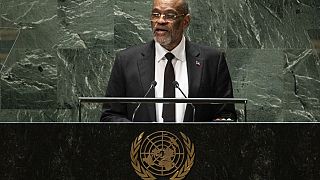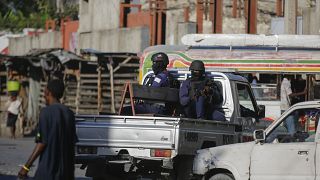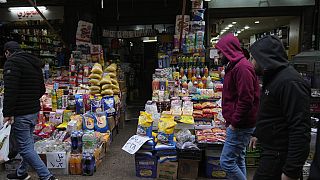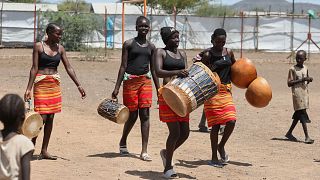Kenya
Haiti's prime minister is in Kenya to discuss a controversial deployment plan as his country grapples with a security and political crisis.
The Caribbean nation has no elected representative.
Giving a lecture Friday (Mar. 1st), Prime minister Ariel Henry reiterated his 2021 pledge to organize elections.
"Because of the violence, we cannot go to elections, and one of the things that we aim is to have elections as soon as possible because we need elections in order to stabilize the country," Henry said.
"We need a democratic governance in order to have people to come and invest in Haiti."
Kenyan's president announced on Friday (Mar. 1st) that both countries signed an agreement on the deployment of 1,000 Kenyan police officers.
Nairobi agreed in October to lead a U.N.-backed international force to Haiti, but in January, the Kenyan High Court ruled the plan unconstitutional.
The office of Haitian Prime Minister Ariel Henry said he was traveling at the invitation of Kenyan President William Ruto to "finalize modalities" for agreements between the countries on the deployment, which would send 1,000 Kenyan police officers to Haiti.
Kenya agreed in October to lead a U.N.-authorized international police force to Haiti, but the Kenyan High Court in January ruled the plan unconstitutional in part because of a lack of “reciprocal agreements” between the two countries.
Gunmen shot at Haiti’s main international airport and other targets, including police stations, in a wave of violence that caught many people by surprise.











02:07
Anxiety grips Haitian community in United States over termination of protected status
00:28
Nairobi hawker shot at close range by police declared brain dead
Go to video
Kenya's Interior minister accuses protesters of coup attempt after deadly demos
00:48
Death toll in Kenyan anti-government protests rises to 16, says rights group
01:07
Kenya prepares for first anniversary of Finance Bill protests
01:52
UN's crucial humanitarian aid work faces a clouded future amid cuts in funds